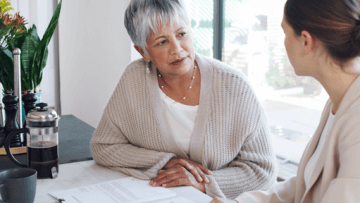While do-it-yourself (DIY) estate planning documents can seem like a convenient and cost-effective option, they can come potential risks. It’s important to understand these drawbacks before deciding to create your estate planning documents without an experienced estate planning attorney.
What can go wrong? Setting up a trust is an example. Manning & Clair handled a case where a couple set up a trust for a parent using an online legal service. When the parent passed away, they assumed her assets would be included in the trust.
However, the trust was not funded with assets (i.e., bank account, real estate, investments, etc.). Also, the parent’s original will made no mention of the trust. Then, the items in the parent’s estate were not assigned and went through probate verses being assigned to the family.
Another example of where not consulting an attorney led to more issues was when a friend of an elderly woman with dementia attempted to help her draft a will. The woman and her friend took the document to a bank to have it witnessed, but the bank did nothing to verify that the woman’s wishes were accurately being met. After the woman died, her family contested the will.
If the woman and her friend had consulted an estate planning attorney familiar with estate planning, the attorney would have done more research and verified that the woman’s wishes were accurately represented in the will.
Common Pitfalls of DIY Estate Planning
There are multiple reasons why DIY estate planning isn’t a good move.
Lack of the Legal Expertise of an Estate Planning Attorney
Estate planning involves complex legal concepts and regulations that vary by jurisdiction. DIY documents may not accurately reflect the specific laws and requirements of your state or country, potentially leading to invalid or unenforceable provisions.
Incomplete or Inaccurate Documentation
Estate planning encompasses various legal instruments such as wills, trusts, and powers of estate planning attorney. DIY solutions may not cover all the necessary aspects or specific circumstances relevant to your situation. This can result in inadequate protection, unintended consequences, or disputes among beneficiaries.
Failure to Address Unique Family Dynamics
Every family has unique dynamics, relationships, and concerns. DIY estate planning documents often lack the customization required to account for these individual factors, potentially leading to family disputes, disagreements, or unintended distributions of assets.
Insufficient Protection without an Estate Planning Attorney
Estate planning is not only about the distribution of assets but also about protecting them from creditors, taxes, and other potential risks. DIY documents may not incorporate the necessary strategies to safeguard your assets, leaving them vulnerable to legal claims or unnecessary taxation.
Ineffective or Outdated Techniques
Estate planning strategies and techniques evolve over time as laws change and new options become available. DIY documents may not incorporate the most up-to-date strategies, potentially missing out on valuable opportunities to optimize your estate plan.
Lack of Professional Guidance and Review
DIY estate planning documents do not come with the benefit of professional legal guidance. An experienced estate planning attorney can provide personalized advice, identify potential issues, and ensure that your documents align with your goals and wishes.
Increased Risk of Errors or Ambiguities
Estate planning documents must be precise, clear, and unambiguous to prevent interpretation issues or challenges in the future. DIY solutions are more prone to errors, omissions, or confusing language, potentially leading to unintended consequences or disputes.
Limited Support and Updates
Estate planning is an ongoing process that requires periodic review and updates to reflect changes in your personal circumstances, family structure, and legal requirements. DIY documents often lack ongoing support, making it more difficult to keep your estate plan up to date.
While DIY estate planning may appear appealing at first, it’s crucial to recognize the potential risks involved. Consulting with a qualified estate planning attorney can help ensure that your wishes are accurately reflected, your assets are protected, and your loved ones are provided for in the most effective way possible.
The Manning & Clair Difference
The estate planning attorneys at Manning & Clair have extensive experience providing guidance on estate planning. Should you need assistance reviewing what is the best path to take when drafting estate documents, put our experience to work for you.
Manning & Clair Note: The information shared here is intended for a general overview and discussion of the subject. It is not intended to be, and should not be used as, a substitute for taking legal advice in any specific situation. Please consult an attorney for advice about your individual situation




